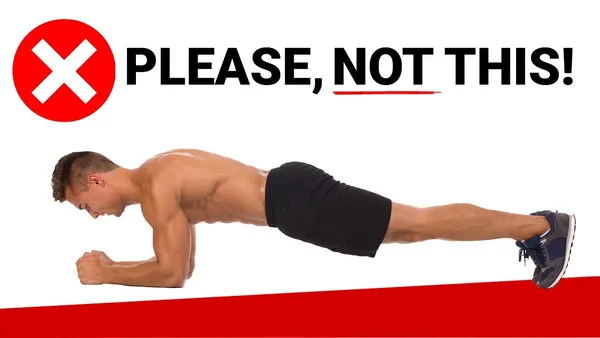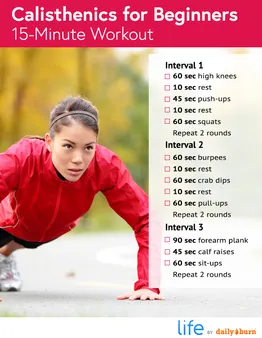Table of Contents
Calisthenics exercises are a great way to get in shape without any equipment. They are bodyweight exercises that use your own body weight as resistance. Calisthenics exercises can be done anywhere, anytime, and they are a great way to improve your strength, flexibility, and endurance. If you are looking for a challenging and effective way to get in shape, calisthenics exercises are a great option. Kizworld offers a variety of calisthenics exercises that can help you reach your fitness goals.
Key Takeaway | Description |
|---|---|
Definition of Calisthenics | Calisthenics are bodyweight exercises that enhance strength, flexibility, and cardiovascular health. |
Types of Calisthenics | Exercises include push-ups, pull-ups, squats, and more, targeting various muscle groups. |
Benefits of Calisthenics | Improved strength, balance, coordination, and cardiovascular fitness. |
Progression and Intensity | Gradually increase difficulty by adding repetitions, sets, or variations to challenge yourself. |
Nutrition for Calisthenics | Focus on protein, carbohydrates, and healthy fats for optimal recovery and energy. |
Community and Motivation | Connect with others online or at gyms for support, motivation, and inspiration. |
Calisthenics Plans and Programs | Find structured programs designed to meet your fitness goals, available at various levels and intensities. |
I. What are Calisthenics Exercises?
Definition of Calisthenics
Calisthenics are a form of bodyweight exercises that use your own body weight as resistance to build strength, flexibility, and cardiovascular health. They are a great way to get in shape without needing any special equipment or gym membership. Calisthenics exercises can be done anywhere, making them a convenient and accessible way to improve your fitness.How to Do a Muscle Up
Benefits of Calisthenics
There are many benefits to doing calisthenics exercises, including:
- Improved strength and muscle mass
- Increased flexibility and range of motion
- Enhanced cardiovascular health
- Improved balance and coordination
- Reduced risk of injury
The Best Calisthenics Gifts and Accessories
Types of Calisthenics Exercises
There are many different types of calisthenics exercises, including:
- Push-ups
- Pull-ups
- Squats
- Lunges
- Planks
- Burpees
The Best Calisthenics Quotes and Motivation
Exercise | Muscles Worked | Benefits |
|---|---|---|
Push-ups | Chest, triceps, shoulders | Builds upper body strength and muscle mass |
Pull-ups | Back, biceps, forearms | Builds upper body strength and muscle mass |
Squats | Legs, glutes, core | Builds lower body strength and muscle mass |
II. Benefits of Calisthenics Exercises
Improved Strength and Endurance
Calisthenics exercises are a great way to improve your strength and endurance. They can help you build muscle, increase your power, and improve your overall fitness level. Calisthenics exercises are also a great way to burn calories and lose weight.How to Build Muscle and Strength with Calisthenics
Increased Flexibility and Mobility
Calisthenics exercises can also help you improve your flexibility and mobility. They can help you stretch your muscles, increase your range of motion, and improve your posture. Calisthenics exercises are also a great way to reduce pain and stiffness.Calisthenics for Flexibility and Mobility
Improved Balance and Coordination
Calisthenics exercises can also help you improve your balance and coordination. They can help you develop a better sense of body awareness, improve your reaction time, and increase your agility. Calisthenics exercises are also a great way to reduce your risk of falls.
Exercise | Benefits |
|---|---|
Push-ups | Strengthens chest, shoulders, and triceps |
Pull-ups | Strengthens back, biceps, and forearms |
Squats | Strengthens legs, glutes, and core |
Lunges | Strengthens legs, glutes, and core |
Planks | Strengthens core, back, and shoulders |
Benefits of Calisthenics Exercises
III. Types of Calisthenics Exercises
Calisthenics exercises encompass a wide range of bodyweight movements that target various muscle groups and fitness components. Here are some common types of calisthenics exercises:
Upper Body Exercises
Pull-Ups: Grip a bar overhead with a supinated (overhand) grip, then pull your body up until your chin passes the bar. This exercise strengthens the lats, back, and biceps.Push-Ups: Start in a plank position, lower your body by bending your elbows, and then push back up to the starting position. Push-ups primarily work the chest, triceps, and shoulders.
Lower Body Exercises
Squats: Standing with your feet shoulder-width apart, lower your body by bending your knees. Keep your chest up and ensure your knees do not go beyond your toes.Lunges: Step forward with one leg and lower your body until your back knee nearly touches the ground. Lunges effectively target the quads, glutes, and hamstrings.
Core Exercises
Planks: Hold a position with your forearms on the ground and your body in a straight line from head to heels. Planks engage your core, shoulders, and back muscles for stability.Sit-Ups: Lie flat and engage your core to lift your upper body while keeping your feet on the ground. This exercise strengthens the abdominal muscles.
Discover more calisthenics exercises in our detailed guide to Calisthenics Exercises and Variations
Types of Calisthenics Exercises
IV. How to Get Started with Calisthenics Exercises
Starting your calisthenics journey can be exciting and rewarding, but it's crucial to approach it with a well-informed plan and a consistent mindset. Here are some tips to help you kickstart your calisthenics adventure:
1. Start Gradually:Don't rush into intense exercises; start with simple bodyweight movements and gradually progress as you gain strength and confidence. Remember, consistency trumps intensity initially.
Beginner Calisthenics Exercises | |||
|---|---|---|---|
Bodyweight Squats | Push-ups (on knees if needed) | Incline Rows | |
Plank | Glute Bridges | Triceps Dips (on bench or chair) |
2. Find a Supportive Network:Connect with other calisthenics enthusiasts online or at local parks. Their encouragement and shared knowledge can boost your motivation and help you stay on track.
- The Most Famous Calisthenics Athletes and Influencers of All Time
- The Top Calisthenics Competitions and Challenges
3. Prioritize Recovery:Adequate rest and recovery are crucial for muscle growth and soreness prevention. Get enough sleep, stay hydrated, and incorporate active recovery activities like yoga or light cardio.
4. Seek Qualified Guidance:If possible, consult an experienced calisthenics coach or fitness professional for personalized advice and guidance to enhance your progress and minimize risks.
5. Embrace Challenges:Don't shy away from challenges, but approach them wisely. Gradually add difficulty to your workouts by increasing reps, sets, or variations to continually push your limits.
"Progress is not always linear, but every small step brings you closer to your calisthenics goals. Stay dedicated, and enjoy the journey of building strength and improving your overall well-being."
- The Best Calisthenics Exercises and Variations
- How to Build Muscle and Strength with Calisthenics
- How to Design Your Own Calisthenics Routine and Program
Remember, calisthenics is an empowering journey that requires patience, discipline, and a positive mindset. Embrace the challenge, seek support when needed, and most importantly, enjoy the process of transforming your body and unlocking your physical potential.
V. Conclusion
Calisthenics exercises are a great way to get in shape without any equipment. They are bodyweight exercises that can be done anywhere, making them a convenient and accessible form of exercise. Calisthenics exercises can help you improve your strength, flexibility, and endurance. They can also help you lose weight and tone your muscles. If you are new to calisthenics, start slowly and gradually increase the difficulty of your workouts over time. Be sure to listen to your body and rest when you need to. With regular practice, you will be amazed at how quickly you can improve your fitness level.